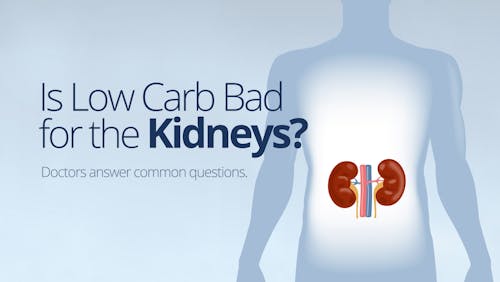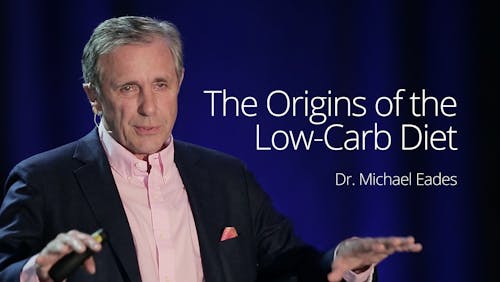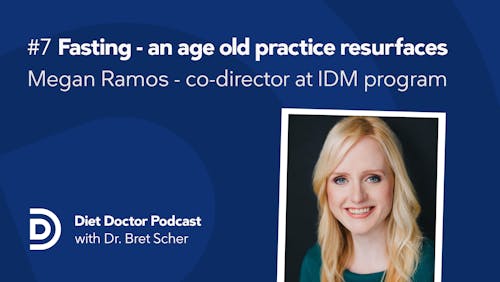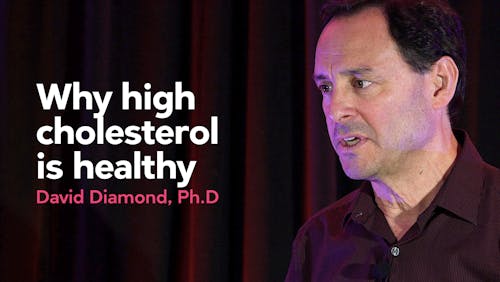Better health from fewer carbs, even without weight loss

Nearly everyone has heard that obesity is “bad for you.” When patients show signs of developing the kinds of diseases related to obesity, the advice that many doctors give is to lose weight by eating less and exercising more. While this may result in weight loss and improved health for some, others don’t experience these results. Is there another path to metabolic health besides weigh loss?
According to new research, there is. A study done by investigators at Ohio State University indicates that restricting dietary carbohydrate can improve the features of metabolic syndrome without requiring an individual to lose weight.
Newsweek: Low-carb diet could reduce risk of these diseases
Metabolic syndrome is a cluster of conditions associated with the development of diabetes and heart disease. The features of metabolic syndrome are abdominal obesity, high blood pressure, high blood sugar, and abnormal levels of cholesterol or triglycerides. This study included 16 obese men and women who had been diagnosed with both obesity and metabolic syndrome.
In this study, participants took turns eating one of three diets — low-carb, moderate-carb, or high-carb — for a month. In between each diet, participants had a two-week break where they ate their normal diet. The entire study took about four months, and the order in which a participant ate a certain diet was assigned randomly.
In most study settings, eating a low-carbohydrate diet causes individuals to spontaneously reduce calories — even if they were not planning on doing so. The reduction of carbohydrate and calories usually results in weight loss, so it is difficult to tell which of these two factors led to the improvement in metabolic health. In this study, the diets were deliberately designed to match the calories each individual needed so that participants would not lose weight; because of this, the study addresses the question: “Can carbohydrate restriction without weight loss improve metabolic health?”
The results showed that more than half of the participants no longer met the definition of having metabolic syndrome after four weeks on the low-carb diet. In addition, three people reversed their metabolic syndrome on the moderate-carb diet and one person reversed their metabolic syndrome on the high-carb diet. For lead researcher Jeff Volek, this indicates that, “Even a modest restriction in carbs is enough to reverse metabolic syndrome in some people, but others need to restrict even more.”
Although this is a small, relatively short-term study, it highlights the possibility that reducing carbohydrate intake may be more important than weight loss in improving metabolic health. This study offers hope to those who struggle to lose weight, providing another possible path to metabolic health: carbohydrate restriction.
This study also suggests that the current focus on obesity, weight loss, and calories may be misguided. Messages that obese bodies are automatically unhealthy bodies may not be true. It may be the quality of the diet, rather than the number of calories eaten or amount of fat tissue a person carries that has the most impact on health.
Another recent study has shown that a low-carbohydrate diet is better than a low-fat diet in reducing levels of fat in the liver. This study also demonstrated that it is the reduction in carbohydrate, not weight loss, that matters most in improving health.
Here at Diet Doctor, we can help you achieve or maintain metabolic health by giving you the tools and support you need to follow a low-carbohydrate diet. This study shows that almost any reduction in dietary carbohydrate can improve your health — and most importantly, you don’t have to lose weight to see those improvements. This study reinforces our message that dietary changes are not just about losing body weight, but about gaining metabolic health.


A low-carb diet for beginners
GuideA low-carb diet is low in carbohydrates, primarily found in sugary foods, pasta and bread. Instead, you eat real foods including protein, natural fats and vegetables. Studies show that low-carb diets result in weight loss and improved health markers.
Earlier
Mediterranean low-carb diet has the edge for reducing liver fat
Heart disease burden on the rise
Optimal metabolic health eludes most Americans – just 12.5% measure up























